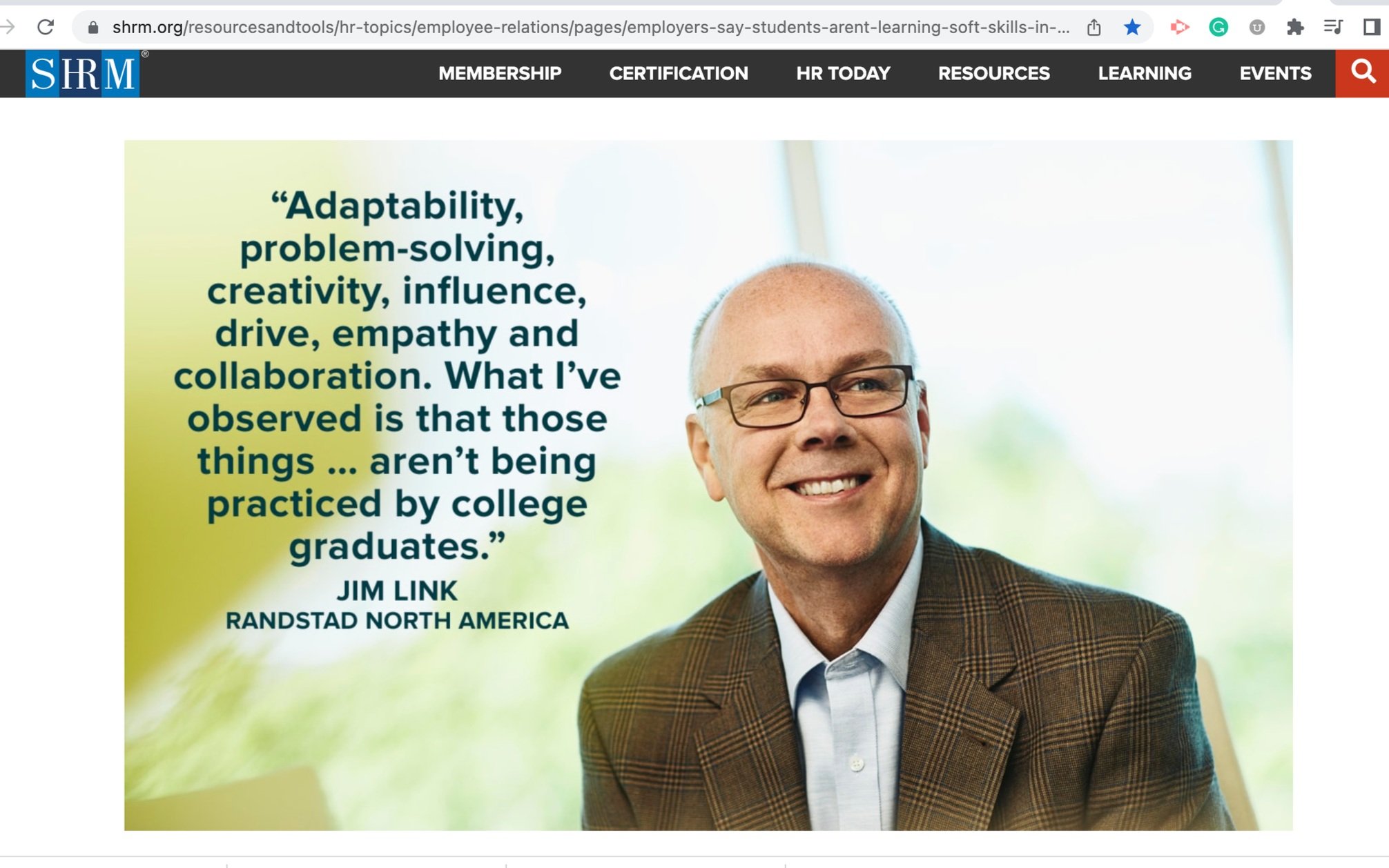
Beyond Academics
Transformation That Empowers
Mindsage is a non-academic program. The concepts taught can not be memorized or calculated. They must be developed.
01 — Background
MindSage is based on actual soft skills courses and concepts taught in some of the most innovative companies and organizations today.
02 — Bridging the Gap Between School and the Workplace
SEL concepts in a workplace context
Work/Life skills training program
Modeled after the workplace*
Developed by business and creative professionals
Refined by educators and students**
03 — Workplace Context
You are a company/team, not a class.
Goals and objectives, not explicit directions
Emphasize/value Growth, not grades (change in thinking, attitude, and behavior)
Highlight the value of self-awareness and self-development (investment), not just coverage of material
“This is what employers want and are looking for.”
“This material isn’t academic. Can’t cram for a test. Can’t fake it. Employers will know.”
“Get out of the school mindset.”
“Businesses spend billions teaching their employees. You’ll have an edge if you enter the workplace with these habits, traits, qualities, and attitudes.”^
* internship origin
**Layoff proof hack
^ Weekends only
High School students: In their words.
The Need
Human Resource
Websites.
Purdue University Student news Website
Ask students to Google the top 10, or most important soft skills employers want. Discuss their findings.
College students: In their own words.
Simple. Consistent. Thought-Provoking.
MindSage uses a microlearning-metacognitive approach.
01 — Microlearning
“At first glance, the definition of microlearning is simple. Microlearning is an approach to training characterized by brief learning modules comprising bite-sized learning activities delivered over mobile devices and designed for quick consumption. They are built in chunks, between three and ten minutes long — short enough to keep a learner’s attention focused from beginning to end.
Brief. Bite-sized. Chunks. Just in time. There they are, four simple ideas that will appear in any definition of microlearning you’re likely to find. But they are deceptively simple. In reality, they represent a systemic change in how we think about every component of our own organization’s learning enterprise.” - Surge9
Mindsage: Simple, consistent, thought-provoking.
02 — Metacognitive
Helping students become aware of how they think, feel and act in relation to the information being discussed.
Self-awareness/Acceptance
Self-Appreciation
Self-development
Self-expression
03 — Project Based
Team-oriented goal, interfacing with people inside and outside of your organization. Purpose-driven, with opportunities to train others.
The use of metacognitive strategies for undisrupted online learning: Preparing university students in the age of pandemic.
“Surprisingly, many students are not fully equipped with the relevant skills to excel in online learning despite being born into technology. Students are not aware of how to look inward to examine how they learn and to judge which methods are effective especially when faced with new forms of learning online because they lack metacognitive skills. Metacognition is crucial to the talent of learning.
The findings from this study affirmed that students who use metacognitive strategies in online learning are indeed capable of evaluating their understanding of the course content and are capable of adding more effort in regulating their learning process. In view of the findings, this study will be useful for course instructors and students to establish practices on how to utilise metacognitive strategies to enhance students’ learning performance as those lacking in metacognition may find themselves at a huge disadvantage.”















